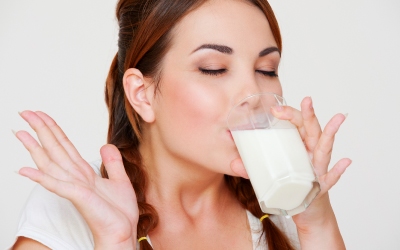Got Milk? Expert Questions Nutritional Value of Low-Fat Milk
You may believe that milk is an essential part of a healthy, balanced diet – especially if you take the extra step of getting a low-fat variety, but a new study has questioned the benefits of milk as a whole. According to Harvard Professor David Ludwig’s latest paper in the Journal of the American Medical Association Paediatrics, in terms of obesity, saturated fats, and overall wellbeing, there is a lack of evidence-based proof that reduced-fat milk trumps whole milk.
Professor Ludwig argues that not only is low-fat milk no better for your wellness than the real fatty deal, but the role of animal milk on a broader scale of human nutrition is also questionable. In his paper, Professor Ludwig writes, ‘Humans have no nutritional requirement for animal milk. Moreover, milk consumption does not protect against [bone] fracture in adults.’ If milk does have any benefit to children, Professor Ludwig surmises that fattier, whole milk may actually improve children’s diets, because it would increase the feeling of fullness.
Yet Globe’s dietician, Leslie Beck, responds that even though milk is high in sugar, it’s a mistake to link it to poor health. Yes, you don’t need milk to get your daily dose of calcium, but Beck warns that Professor Ludwig may be getting too concerned with fat content when it comes to kids and milk. ‘What kid is going to eat cooked collard greens to get calcium?’ she asks. ‘Dairy provides calcium and protein, and most kids will drink it. There are bigger fish to fry: Instead of worrying about that glass of milk, let’s take a look at their meals and snack foods, cereal bars, goldfish crackers, cookies – things that kids are eating that spike their blood sugar and increase premature hunger.’
Beck also cautions against becoming confused between naturally-occurring lactose, and added sugar. ‘Most people read the labels on milk and yogurt and say “Oh my God!”’ she says. ‘But you’ve got to think that’s naturally occurring. You’re getting so many other nutrients along with that sugar.’ She adds, ‘You can get a lot of nutrients from cow’s milk – vitamin D, calcium, protein – but you don’t need milk to have a great diet, that’s for sure.’

Comments are closed.